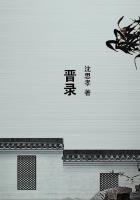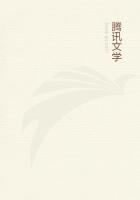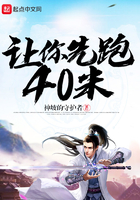I here have become a grammarian, I who never learned any language but by rote, and who do not yet know adjective, conjunction, or ablative. I think I have read that the Romans had a sort of horses by them called 'funales' or 'dextrarios', which were either led horses, or horses laid on at several stages to be taken fresh upon occasion, and thence it is that we call our horses of service 'destriers'; and our romances commonly use the phrase of 'adestrer' for 'accompagner', to accompany. They also called those that were trained in such sort, that running full speed, side by side, without bridle or saddle, the Roman gentlemen, armed at all pieces, would shift and throw themselves from one to the other, 'desultorios equos'. The Numidian men-at-arms had always a led horse in one hand, besides that they rode upon, to change in the heat of battle:
"Quibus, desultorum in modum, binos trahentibus equos, inter acerrimam saepe pugnam, in recentem equum, ex fesso, armatis transultare mos erat: tanta velocitas ipsis, tamque docile equorum genus."
["To whom it was a custom, leading along two horses, often in the hottest fight, to leap armed from a tired horse to a fresh one; so active were the men, and the horses so docile."--Livy, xxiii. 29.]
There are many horses trained to help their riders so as to run upon any one, that appears with a drawn sword, to fall both with mouth and heels upon any that front or oppose them: but it often happens that they do more harm to their friends than to their enemies; and, moreover, you cannot loose them from their hold, to reduce them again into order, when they are once engaged and grappled, by which means you remain at the mercy of their quarrel. It happened very ill to Artybius, general of the Persian army, fighting, man to man, with Onesilus, king of Salamis, to be mounted upon a horse trained after this manner, it being the occasion of his death, the squire of Onesilus cleaving the horse down with a scythe betwixt the shoulders as it was reared up upon his master. And what the Italians report, that in the battle of Fornova, the horse of Charles VIII., with kicks and plunges, disengaged his master from the enemy that pressed upon him, without which he had been slain, sounds like a very great chance, if it be true.
[In the narrative which Philip de Commines has given of this battle, in which he himself was present (lib. viii. ch. 6), he tells us of wonderful performances by the horse on which the king was mounted. The name of the horse was Savoy, and it was the most beautiful horse he had ever seen. During the battle the king was personally attacked, when he had nobody near him but a valet de chambre, a little fellow, and not well armed. "The king," says Commines, "had the best horse under him in the world, and therefore he stood his ground bravely, till a number of his men, not a great way from him, arrived at the critical minute."]
The Mamalukes make their boast that they have the most ready horses of any cavalry in the world; that by nature and custom they were taught to know and distinguish the enemy, and to fall foul upon them with mouth and heels, according to a word or sign given; as also to gather up with their teeth darts and lances scattered upon the field, and present them to their riders, on the word of command. 'T is said, both of Caesar and Pompey, that amongst their other excellent qualities they were both very good horsemen, and particularly of Caesar, that in his youth, being mounted on the bare back, without saddle or bridle, he could make the horse run, stop, and turn, and perform all its airs, with his hands behind him. As nature designed to make of this person, and of Alexander, two miracles of military art, so one would say she had done her utmost to arm them after an extraordinary manner for every one knows that Alexander's horse, Bucephalus, had a head inclining to the shape of a bull; that he would suffer himself to be mounted and governed by none but his master, and that he was so honoured after his death as to have a city erected to his name. Caesar had also one which had forefeet like those of a man, his hoofs being divided in the form of fingers, which likewise was not to be ridden, by any but Caesar himself, who, after his death, dedicated his statue to the goddess Venus.
I do not willingly alight when I am once on horseback, for it is the place where, whether well or sick, I find myself most at ease. Plato recommends it for health, as also Pliny says it is good for the stomach and the joints. Let us go further into this matter since here we are.
We read in Xenophon a law forbidding any one who was master of a horse to travel on foot. Trogus Pompeius and Justin say that the Parthians were wont to perform all offices and ceremonies, not only in war but also all affairs whether public or private, make bargains, confer, entertain, take the air, and all on horseback; and that the greatest distinction betwixt freemen and slaves amongst them was that the one rode on horseback and the other went on foot, an institution of which King Cyrus was the founder.
There are several examples in the Roman history (and Suetonius more particularly observes it of Caesar) of captains who, on pressing occasions, commanded their cavalry to alight, both by that means to take from them all hopes of flight, as also for the advantage they hoped in this sort of fight.
"Quo baud dubie superat Romanus,"
["Wherein the Roman does questionless excel."--Livy, ix. 22.] says Livy. And so the first thing they did to prevent the mutinies and insurrections of nations of late conquest was to take from them their arms and horses, and therefore it is that we so often meet in Caesar:
"Arma proferri, jumenta produci, obsides dari jubet."
["He commanded the arms to be produced, the horses brought out, hostages to be given."--De Bello Gall., vii. II.]
The Grand Signior to this day suffers not a Christian or a Jew to keep a horse of his own throughout his empire.

